





Colorado Criminal Law – Patient – Psychologist Confidentiality – What If The Patient Makes A Threat?
By H. Michael Steinberg – Colorado Criminal Defense Lawyer – email the author at [email protected]

Colorado Criminal Law – Patient – Psychologist Confidentiality – What If The Patient Makes A Threat?
Colorado Criminal Law – Patient – Psychologist Confidentiality – What If The Patient Makes A Threat? The concept of privileges in Colorado – as in many states – is very complex. But the Colorado Supreme Court has clarified one area this year in the Court’s recent decision on threats made during therapy involving psychologists.
This article addresses threats made to psychologists and whether those threats can:
(1) be disclosed at all and
(2) whether the psychologist can testify about the threats at a trial involving an accused person – the conveyor of those threats.
First – What Is An Evidentiary Privilege in Colorado? – CRS § 13-90-107
Criminal Trials are conducted according to rules involving the production of evidence that is heard and viewed by a judge and or a jury. Those rules are called rules of criminal procedure and of rules of evidence. Among those rules are special rules of evidence that protect certain “relationships” in society. Evidentiary “privileges” that have long been recognized are rules that apply between:
- lawyer and client,
- husband and wife,
- clergyman and penitent,
- doctor and patient,
- accountant and client,
- psychologist and client,
- victim advocate and victim and
- certain governmental officials giving sensitive advice.
Privileges bar lawyers, doctors, clergy and others from revealing what was said to them in confidence. The reason? Our lawmakers want to encourage candid and complete communication between these professionals and the people they help. Especially when it comes to testifying against them in a criminal proceeding.
At a Colorado criminal trial – in the absence of a statutory or a constitutional basis that applies to a particular witness (example – a Fifth Amendment right to remain silent), no person has a right to refuse to be a witness, to disclose any matter, or to produce any object or writing. The rule is this – relevant, competent, and properly authenticated evidence is presumed admissible at every trial.
However, there are many exceptions to these evidentiary rules. For example – as relevant to the area of Colorado criminal defense law – A criminal lawyer cannot generally reveal what a client says in confidence, however that same criminal lawyer must reveal when a client expresses the clear intention to commit a crime in the future.
Another example involves Colorado domestic violence cases – while it is well known that a spouse cannot generally be forced to testify against the other spouse, that privilege does not apply in cases where the accused is alleged to have committed an act or acts of domestic violence or child abuse.
The topic of this article looks at a recent Colorado Supreme Court case – In re People v. Kailey – that addresses threats made during therapy.
The 2014 Kailey Case
In June 2014 – in the Kailey Case – the Colorado Supreme Court ruled that if a mental health treatment provider believes that statements made by a patient during a therapy session threaten imminent physical violence against a specific person or persons, and therefore trigger a mandated report to warn under CRS §13-21-117(2), those patient’s threatening statements are NOT protected by the psychologist–patient privilege provided by CRS § 13-90-107(1)(g).
A judge – under this new case – must now allow such threatening statements (very damaging to the defendant) into evidence against the accused at a criminal trial.
The Kailey case involves a clash between two distinct laws in Colorado that protect two different interests. The first is the “psychologist-patient privilege” (13-90-107(1)(g)) and the second is the so called “duty to warn” law for psychologists (13-21-117(2) Mandatory reporting laws for example to report child abuse (19-3-304 ) are not new.
In this clash between the two laws – the Colorado Supreme Court held in the Kailey Case – that:
“if a mental health treatment provider believes, using his or her professional judgment, that statements made by a patient during a therapy session threaten imminent physical violence against a specific person or persons — and accordingly trigger the provider’s “duty to warn” –the patient’s threatening statements are not protected by the psychologist-patient privilege.”
Put another way – as a result of this new rule – the exclusion of threatening statements made by a mental health patient to a mental health treatment provider on the grounds that they are barred by the psychologist-patient privilege, will not take place – those statements are now admissible.
A Closer Look At The Law – CRS 13-21-117(2)
CRS 13-21-117(2) reads as follows:
“where the patient has communicated to [a] mental health [treatment] provider a serious threat of imminent physical violence against a specific person or persons,” a “duty to warn” arises. This duty is discharged when the provider makes reasonable and timely efforts to notify any person or persons specifically threatened, as well as notifies an appropriate law enforcement agency or takes other appropriate action, including but not limited to hospitalizing the patient.
The Additional “Damage” Of Permitting Psychologists To Testify At Criminal Trials – Worth It?
The reasoning of the court is that by “allowing therapists to testify about the same threats they are required to disclose pursuant to the duty to warn does little — if any — additional damage to the therapeutic relationship.”..
“The therapeutic relationship that underpins the privilege’s existence is damaged when the therapist makes the initial disclosure pursuant to his or her duty to warn, not when the therapist testifies.”
“…silencing psychologists at the courthouse door would severely undermine the legislature’s objectives in enacting the duty to warn.”
Conclusion – Colorado Criminal Law – Patient – Psychologist Confidentiality – What If The Patient Makes A Threat?
The Kailey case’s holding – with which I disagree – permits prosecutors to call psychologists to testify about otherwise confidential statements containing threats. While the duty to warn makes sense – the extension of that duty to then permit actual testimony at trial – does not.
While it may be true that “the testimony of the mental health treatment provider may represent a victim’s best hope to obtain real protection from potentially violent mentally ill individuals” .. the destruction to the relationship of trust so necessary to the psychologist as a result of that testimony – that is – to the therapeutic environment at issue – cannot be underestimated.
If you found any information I have provided on this web page article helpful please click my Plus+1 button below so that others may also find it.
ABOUT THE AUTHOR: H. Michael Steinberg – Email The Author – A Denver Colorado Criminal Defense Lawyer – or call his office at 303-627-7777 during business hours – or call his cell if you cannot wait and need his immediate assistance – 720-220-2277.
If you are charged with A Colorado crime or you have questions about the topic of this article – Colorado Criminal Law – Patient – Psychologist Confidentiality – What If The Patient Makes A Threat?, please call our office. The Law Offices of H. Michael Steinberg, in Denver, Colorado, provide criminal defense clients with effective, efficient, intelligent and strong legal advocacy. We can educate you and help you navigate the stressful and complex legal process related to your criminal defense issue.
 H. Michael Steinberg, is a Denver, Colorado criminal defense lawyer with over 40 years of day to day courtroom experience – specializing in Colorado Criminal Law along the Front Range. He will provide you with a free initial case consultation to evaluate your legal issues and to answer your questions with an honest assessment of your options. Remember, it costs NOTHING to discuss your case. Call now for an immediate free phone consultation.
H. Michael Steinberg, is a Denver, Colorado criminal defense lawyer with over 40 years of day to day courtroom experience – specializing in Colorado Criminal Law along the Front Range. He will provide you with a free initial case consultation to evaluate your legal issues and to answer your questions with an honest assessment of your options. Remember, it costs NOTHING to discuss your case. Call now for an immediate free phone consultation.
Helping Clients To Make Informed Decisions In the Defense of Colorado Criminal Cases.
Contact A Lawyer with Three Decades of Experience as a Denver Criminal Attorney at The Steinberg Colorado Criminal Defense Law Firm today.
Colorado Defense Lawyer H. Michael Steinberg provides solid criminal defense for clients throughout the Front Range of Colorado – including the City and County courts of Adams County, Arapahoe County, City and County of Boulder, City and County of Broomfield, City and County of Denver, Douglas County, El Paso County – Colorado Springs, Gilpin County, Jefferson County, Larimer County, and Weld County,…. and all the other cities and counties of Colorado along the I-25 Corridor… on cases involving this article’s topic …Colorado Criminal Law – Patient – Psychologist Confidentiality – What If The Patient Makes A Threat?
Other Articles of Interest:
- Colorado State Felonies – Colorado Felony Homicides – Murder, Manslaughter, and Criminally Negligent Homicide(18-3-102), (18-3-103), (18-3-104), (18-3-105)
- Colorado Child Abuse Crimes, Penalties and Sentencing – C.R.S. 18-6-401 Colorado Revised Statutes
- Colorado Criminal Law – The Rules of Discovery in Colorado – Getting The Information You Need To Defend Your Clients
- Colorado Criminal Law – Understanding At Risk Victim Crimes – Wrongs To At Risk Adults and Other At Risk Victims – 18-6.5-103
- Colorado State Crimes – Felony Child Abuse (18-6-401)






















